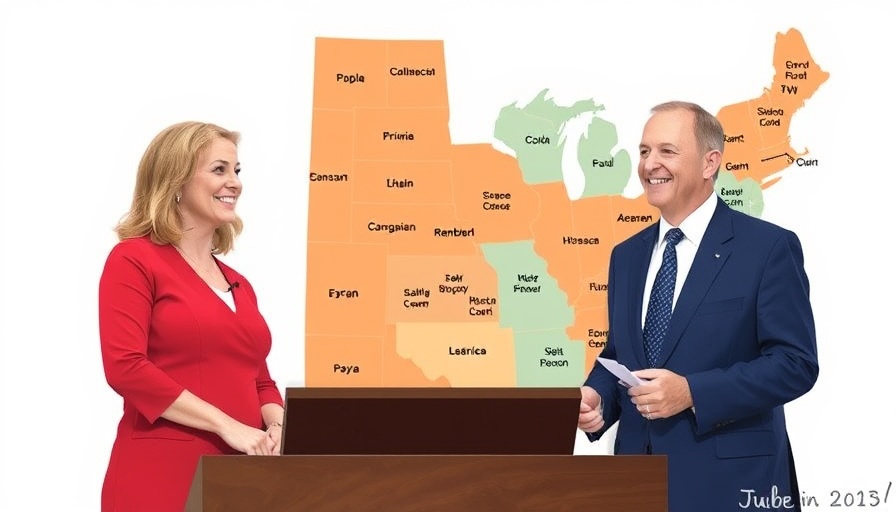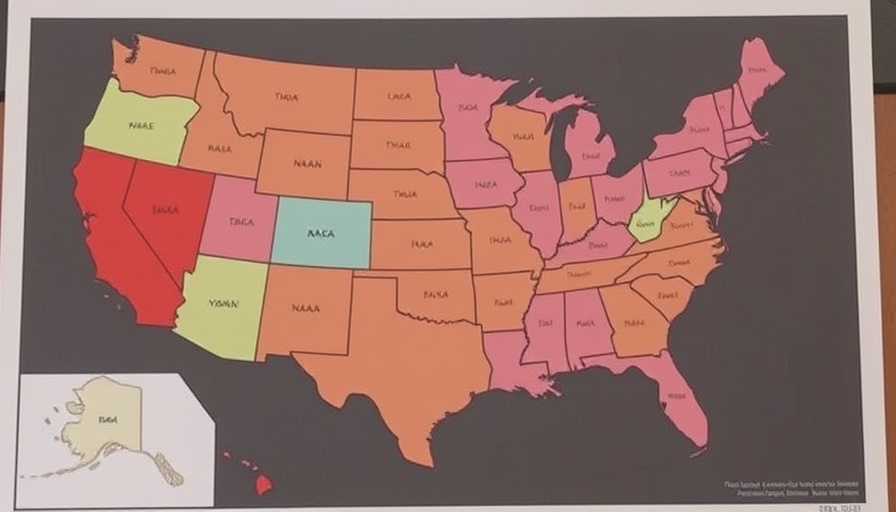
The Bold Move: Texas Democrats Challenge Redistricting
In a dramatic turn of events, Texas Democrats have fled their home state to protest against a contentious redistricting plan backed by former President Donald Trump. This planned change seeks to secure an additional five GOP-leaning congressional seats in Texas, often perceived as a strategic maneuver to fortify Republican power before the 2026 midterm elections. Such political theater underscores the growing tension between state and federal powers and calls into question the ethics of manipulating electoral maps for partisan gain.
A Stand for Democracy: What This Means for Voters
The lawmakers who left Texas argue that the redistricting proposal undermines democratic principles, comparing it to a "modern-day stagecoach heist". Governor Greg Abbott's threats to remove Democratic lawmakers from office have stirred up outrage and drawn comparisons to historical instances when governmental authority has been wielded to suppress political opposition. In this high-stakes game, Democrats position themselves as defenders of voter rights, calling on their counterparts to engage in fair rule-making rather than retribution.
The Broader Implications: National Impact of Local Politics
This legislative standoff is emblematic of broader national tensions between Democrats and Republicans, shedding light on various states' willingness to redraw maps in retaliation against actions taken by other states. Democratic governors across the nation are contemplating similar strategies to combat perceived injustices, drawing attention to a political arms race that could redefine electoral landscapes. If such actions gain momentum, we could witness an unprecedented shift in congressional power dynamics across the U.S.
Public Response: What Locals Think
The fleeing legislators received both support and criticism from the Texas public and community leaders. Some view their tactics as necessary to protect democracy, while others see them as a dereliction of duty to constituents. This divide reflects an increasingly polarized political climate, and as the Texas House grapples with the issue of quorum, it prompts citizens to consider the implications of political maneuvers on local governance and representation.
Future Predictions: What Lies Ahead for Texas Politics
As the 2026 elections approach, the outcomes of this standoff will likely shape the future of local and national politics. If Democrats successfully rally support to block the redistricting map, it could challenge the Republican stronghold in Texas. Conversely, should Abbott's efforts prevail, it might set a precedent for the aggressive redistricting tactics that could extend beyond Texas, impacting states nationwide and further entrenching party barriers at the federal level.
Take Action: Understanding the Stakes
For citizens of Texas and beyond, this struggle is more than just political theatrics. It's a call to engage in local politics, understand voter rights, and be proactive about the redistricting process that could affect their representation. Through social media campaigns, community discussions, and peaceful protests, voters have the power to influence the narrative surrounding these critical governmental changes.
Looking forward, it is essential for constituents to stay informed about developments regarding local and state governance and hold their representatives accountable. Engaging in conversations about redistricting and understanding its ramifications could empower voters to take charge of their democratic rights.
As we await further developments in this story, consider following local news sources and participating in community discussions to lend your voice to the ongoing debate surrounding these pivotal issues.
 Add Element
Add Element  Add Row
Add Row 



Write A Comment